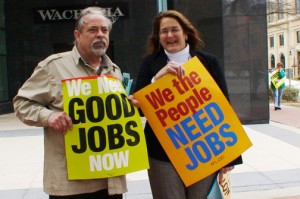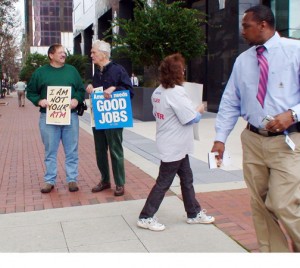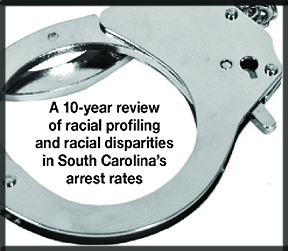A new federal commission is meeting for the first time today in Washington, and Julie Harbin, president of the South Carolina Alliance for Retired Americans (the newest member of the SC Progressive Network), is encouraging retirees in the Palmetto State to pay close attention in the coming months.
The panel, the National Commission on Fiscal Responsibility and Reform, is a bi-partisan group charged with recommending ways to lower the federal debt. US Congressman John Spratt serves on the Commission, which will offer its recommendations in December.
Harbin fully supports the goals of the Commission, but is deeply concerned that some are urging the panel to recommend changes in Social Security as a way to reduce the federal deficit. “If the commission takes a thorough and honest look at Social Security, it will see one of our nation’s greatest success stories. Social Security has helped generations of retirees stay out of poverty. South Carolina’s retirees want to make sure that Social Security remains strong for our children and grandchildren,” Harbin said. She noted that for over 25 percent of retirees, Social Security is their only source of income. With an average monthly benefit of only $1,164, she said that Social Security is, “a tenuous lifeline for many seniors.”
Harbin said that Social Security did not cause our large deficits. Since 1983, American workers have paid enough Social Security payroll taxes to accumulate a $2.5 trillion surplus in the Social Security Trust Fund. But between 2001 and 2006, Washington gave away $2.48 trillion in tax cuts.
To help retirees better follow the panel’s work, the Alliance for Retired Americans has written the Commission to urge that its work be conducted in open, televised sessions and that it hold field hearings across the country to listen to public testimony.
SC Alliance for Retired Americans President Julie Harbin.






